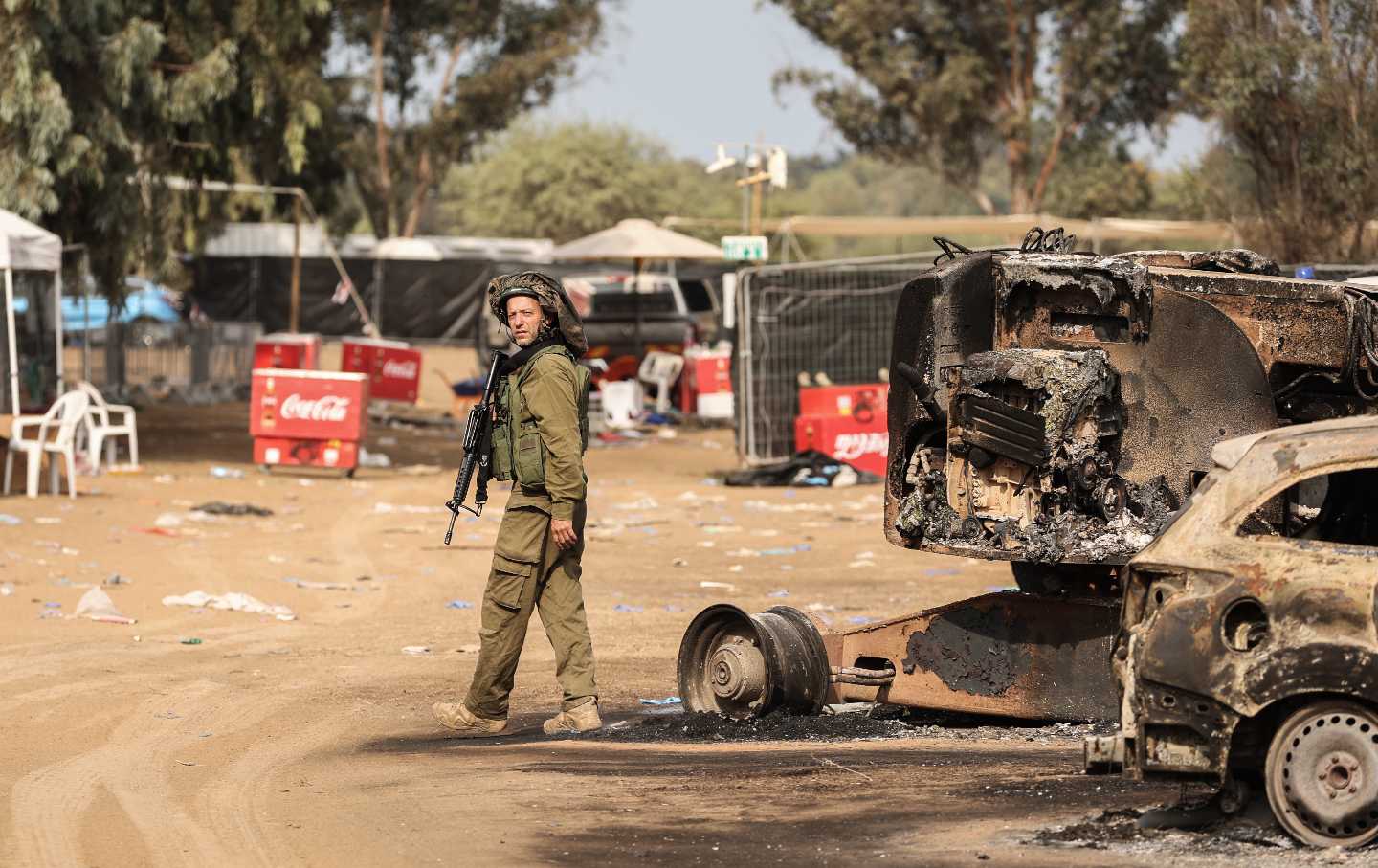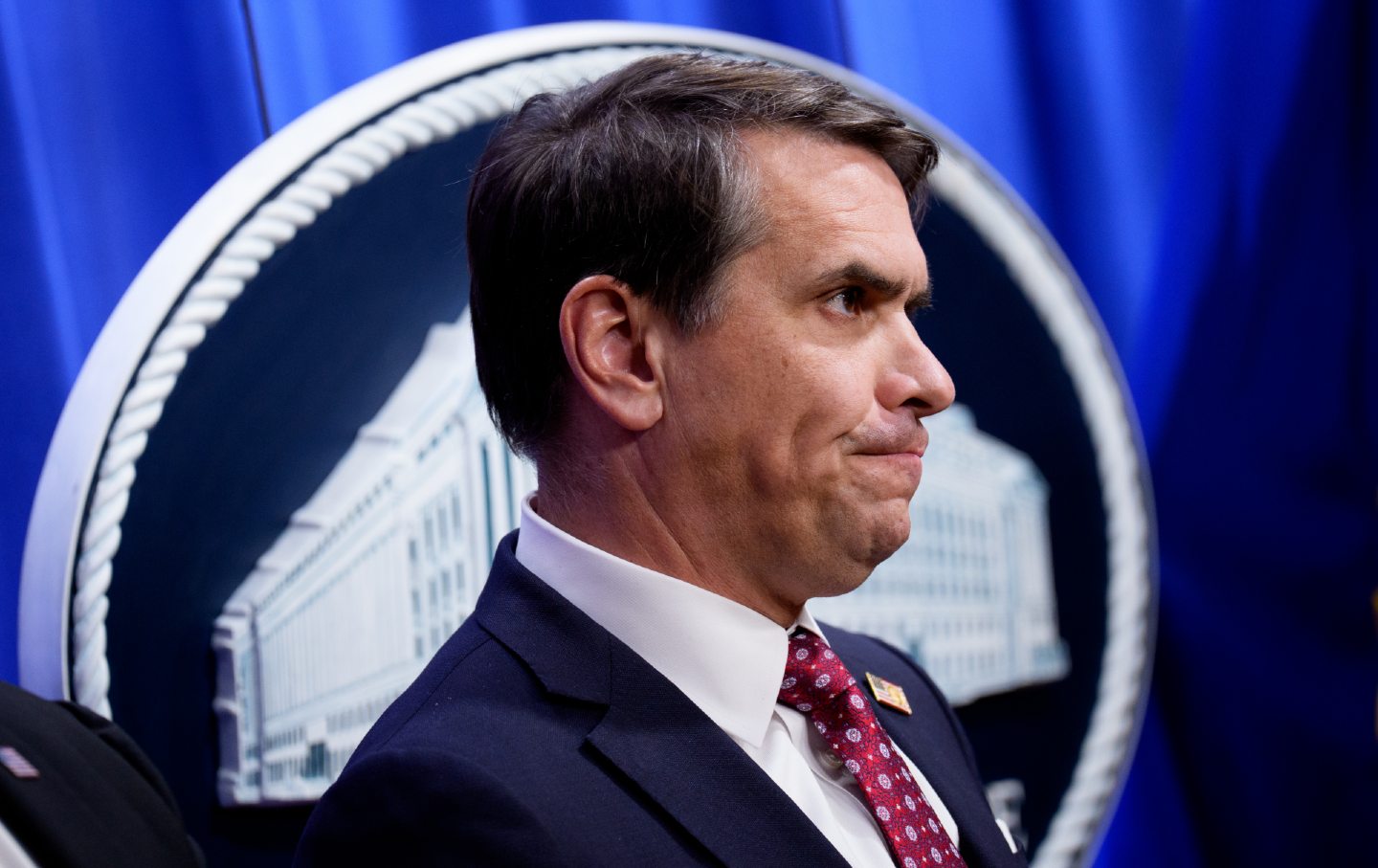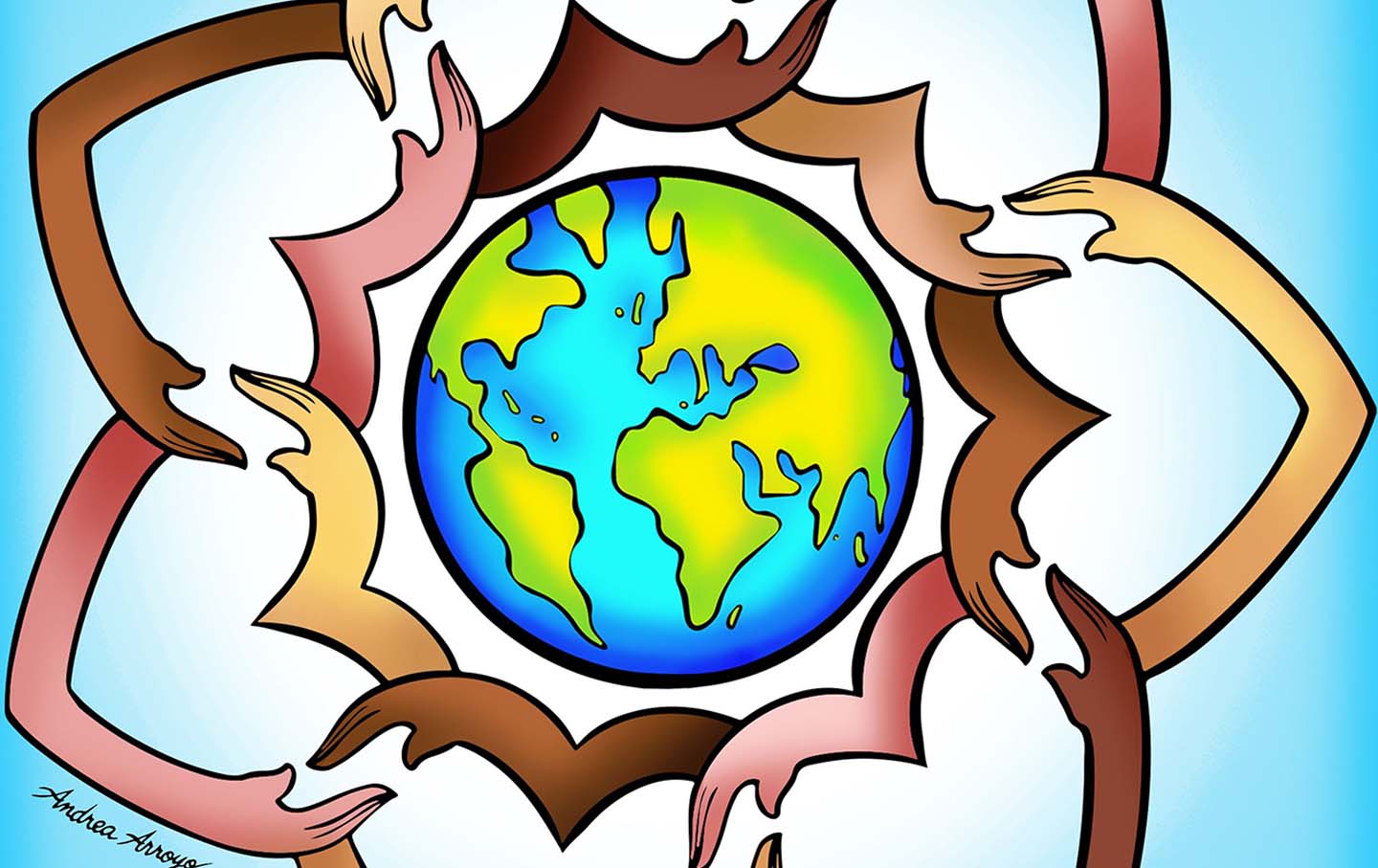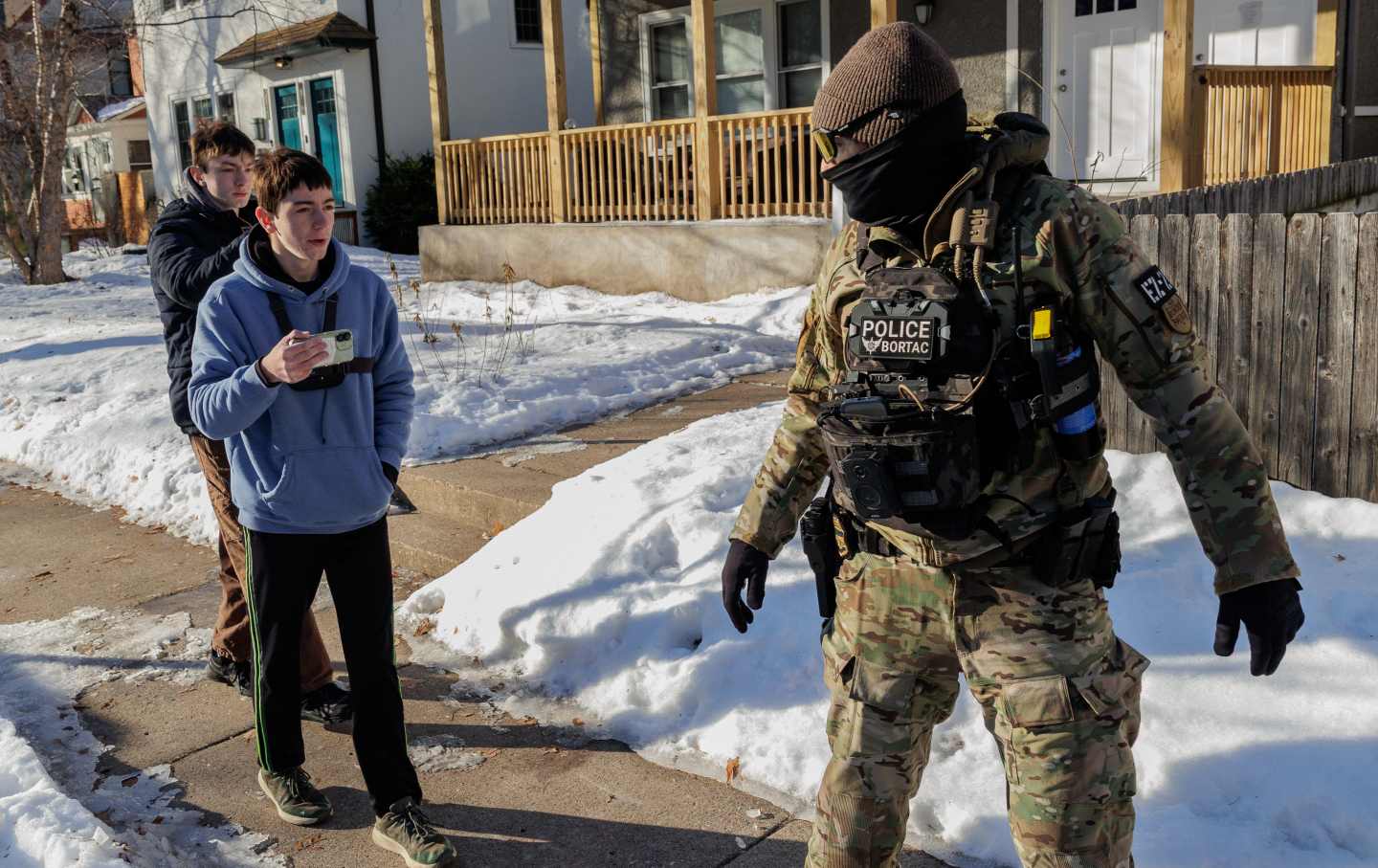Hamas’s Shock Attack Should Spark Our Horror—and Our Questions
This appalling violence emerged within a context, and we need to understand that context in order to achieve peace.

Tel Aviv—After waking up early Saturday to sirens and a barrage of hundreds of rockets, we learned about the unprecedented assault that Palestinian militants from Gaza carried out on Israeli towns near the border. More than 1,000 Israelis were massacred so far—many in their homes and many others at a music festival—and more than 150 others were abducted and taken to Gaza. Not since 1948 has Israel faced such an invasion, with entire villages overrun and communities decimated.
As the hours passed, and Israeli ground forces made confused, chaotic attempts to regain control of the towns seized by Hamas, the Israeli military launched air strikes, which have killed more than 765 Palestinians so far. Prime Minister Benjamin Netanyahu has vowed to inflict a level of pain on Gaza that “our enemies have never seen.” (For reference, in the worst of the previous wars with Gaza, Israel killed over 2,300 Palestinians—more than half of them civilians.) The terror felt by people who saw armed militants in their streets and homes, or by those being held captive in hostile territory or facing the sight of approaching fighter jets and tanks, is unimaginable. Attacks on civilians are war crimes, and my heart goes out to the victims and their families.
But contrary to what many Israelis are saying, while the army was clearly caught completely off guard, this was not a “unilateral” or “unprovoked” attack. The terror Israelis feel right now—myself included—is a sliver of what Palestinians have been feeling on a daily basis under the decades-long military occupations of the West Bank and Gaza.
The October 7 attack by Hamas must also be seen in the context of more recent developments. One is the pending deal to normalize relations between Saudi Arabia and Israel pursued by President Biden. For years, Netanyahu has argued that peace can be achieved without talking to Palestinians or making any concessions. The Abraham Accords, brokered by the Trump administration, stripped Palestinians of one of their last bargaining chips and sources of support: the solidarity among Arab nations (though the strength of that solidarity has long been in question). The prospect of losing perhaps the most important of those states may well have helped push Hamas to the edge.
Meanwhile, commentators have been warning for weeks about escalating violence in the West Bank. More Palestinians and Israelis have been killed there during the past year than in any other year since the Second Intifada of the early 2000s. The Israeli army routinely raids Palestinian cities and refugee camps. The far-right government has given Jewish settlers a free hand to set up new illegal outposts and launch pogroms against Palestinian towns and villages, with IDF soldiers killing or maiming Palestinians who try to defend their homes. During the high holidays, Jewish extremists challenged the status quo arrangement between Jordan and Israel over the administration of the Temple Mount/Al Aqsa Mosque in Jerusalem, backed by politicians who share their ideology.
In Gaza, meanwhile, the ongoing siege is steadily destroying the lives of more than 2 million Palestinians, many of whom live in extreme poverty, with little access to clean water and only about four hours of electricity a day. This siege has no official endgame; even the Israeli state comptroller found in 2017 that the government had never seriously discussed ending the blockade or even considered any alternatives to the recurring rounds of war and death.
All of this does not justify the killing of civilians. That is absolutely wrong. Rather, it reminds us that there is a reason for everything that is happening now, and that—as in all previous outbursts of violence—there is no military solution to Israel’s problem with the occupied territories or the resistance that naturally emerges in response to apartheid.
In recent months, hundreds of thousands of Israelis have been marching for “democracy” and “equality,” with many saying they would refuse military service because of the Netanyahu government’s increasingly authoritarian policies. What those protesters and reserve soldiers need to understand—especially now, as many of them halt their demonstrations and join the war against Hamas—is that Palestinians have been struggling to achieve those same demands for decades, facing an Israel that to them has always been completely authoritarian.
As I write these words, I am sitting at home in Tel Aviv, trying to figure out how to protect my family in a house with no bomb shelter or safe room. I hear people around me saying that now is the time to eradicate Gaza entirely—calling for genocide. Yet I remember that everything that I am feeling now, which every Israeli must be sharing, has been the life experience of millions of Palestinians for far too long. I recall how, for years, Palestinians have been telling me that Israelis “are savages; you can’t negotiate with them”—as Israelis are saying about Palestinians. The only solution, as it has always been, is to bring an end to Israel’s regime of apartheid, occupation, and siege and promote a future based on justice and equality for all of us. We have to change course not despite the horror, but precisely because of it.








